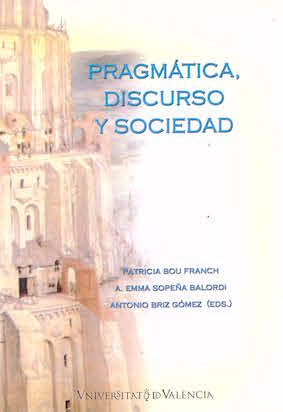Conference calls, the business meetings of the 21st century: a multi-layered approach to an emerging genre
DOI:
https://doi.org/10.7203/qfilologia.12.4090Paraules clau:
trucades a tres o més persones, gènere, pragmàtica, cortesia, comunicació mediatitzada, pòlilogs Resum
Resum
El propòsit d'aquest estudi és descriure un gènere emergent –la trucada telefònica a tres o més persones– que ha desplaçat a les reunions tradicionals al món corporatiu nord-americà. Aquestes trucades constitueixen un sub-gènere híbrid en el qual la comunicació entre les parts no es realitza mai cara a cara sinó que està mediatitzada: a través del telèfon i assistida per ordinador. Els constrenyiments d'aquests mitjans tenen repercussions essencials sobre les característiques definitòries del subgènere. Els fonaments teòrics de l'anàlisi del corpus són interdisciplinaris en haver-se utilitzat conceptes provinents dels estudis (inter)culturals i del gènere, així com d'Inglés per a Finalitats Específiques, la pragmàtica i l'anàlisi del discurs. Així mateix, en l'anàlisi s'aplica l'enfocament suggerit per Flowerdew (2005) a l'estudi del gènere i es combina l'anàlisi lingüística amb l'etnogràfic.
 Descàrregues
Descàrregues
Descàrregues
Com citar
-
Resum330
-
PDF (Español)167
Número
Secció
Llicència
 Este obra está bajo una licencia de Creative Commons Reconocimiento-NoComercial-SinObraDerivada 4.0 Internacional.
Este obra está bajo una licencia de Creative Commons Reconocimiento-NoComercial-SinObraDerivada 4.0 Internacional.
Tots els documents inclosos a OJS són d'accés lliure i propietat dels seus autors i/o institucions editores, i per tant, qualsevol acte de reproducció, comercialització, comunicació pública o transformació total o parcial necessita el consentiment exprés i escrit d'aquests.
Authors who publish with this journal agree to the following terms:
- Authors retain copyright and grant the journal right of first publication with the work simultaneously licensed under a Creative Commons Attribution License that allows others to share the work with an acknowledgement of the work's authorship and initial publication in this journal.
- Authors are able to enter into separate, additional contractual arrangements for the non-exclusive distribution of the journal's published version of the work (e.g., post it to an institutional repository or publish it in a book), with an acknowledgement of its initial publication in this journal.
- Authors are permitted and encouraged to post their work online (e.g., in institutional repositories or on their website) prior to and during the submission process, as it can lead to productive exchanges, as well as earlier and greater citation of published work (See The Effect of Open Access).



